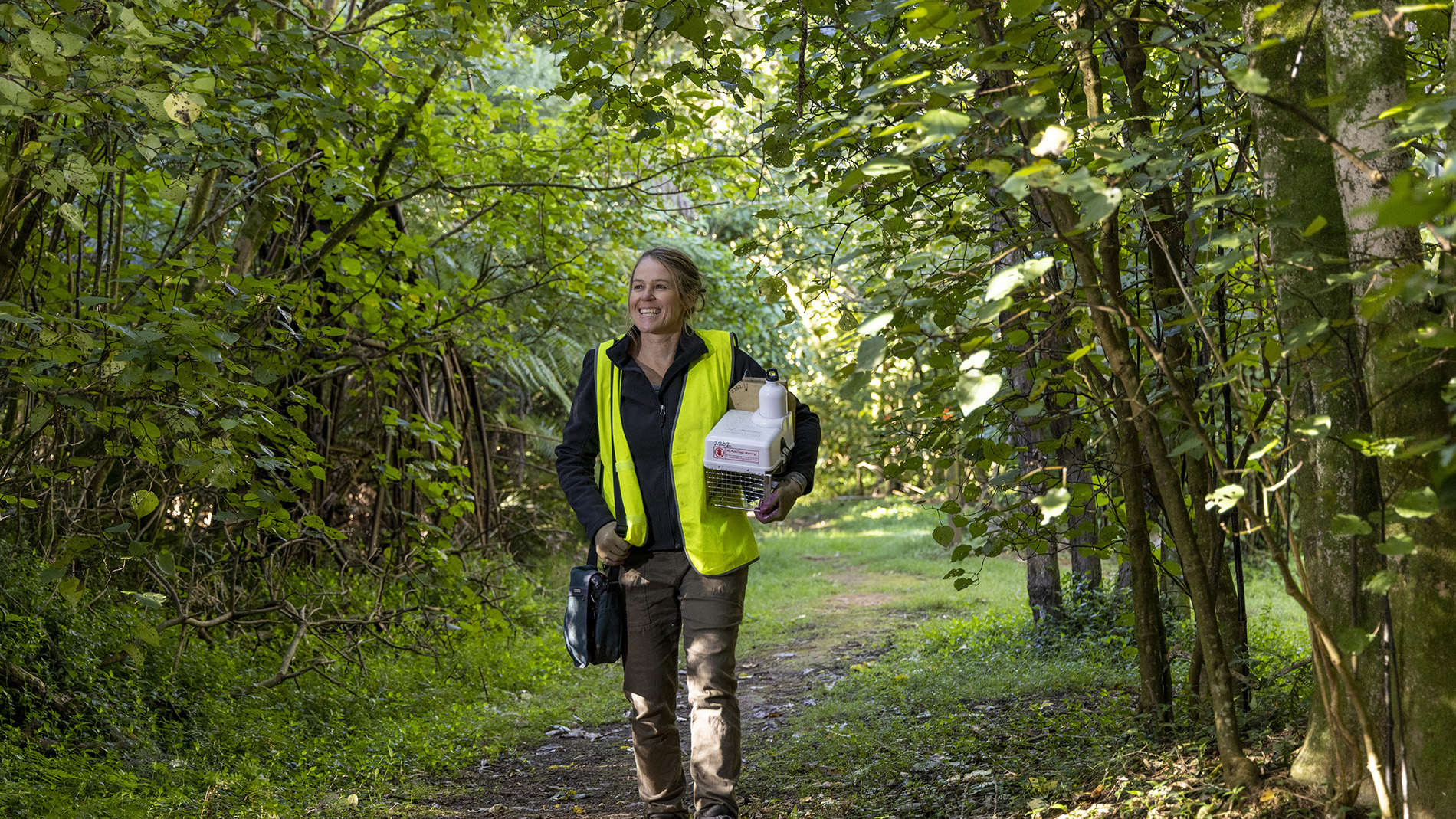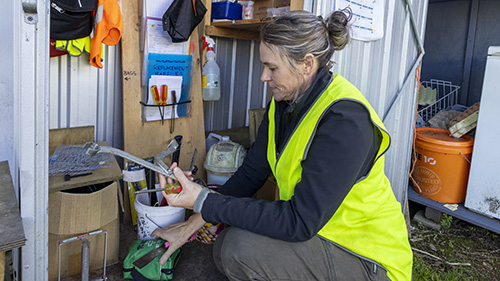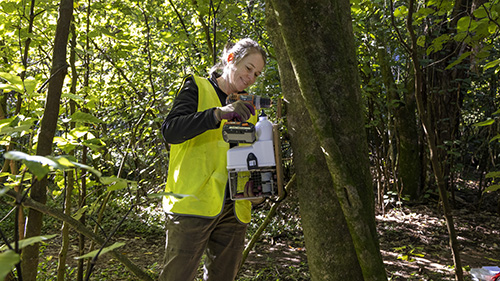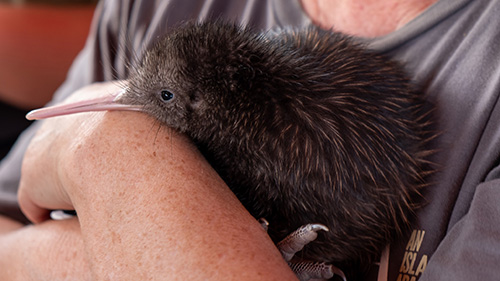“Everyone is just really dedicated. They just get out and do it. You can spend an hour in a vehicle and then some of the trap lines are four to five hours around. They give 4000 hours a year, which equates to about 11 hours a day.”
– Sheena Beaton, Thames Coast Kiwi Care Coordinator
For Thames Coast Kiwi Care coordinator Sheena Beaton, the best part of her job isn’t – surprisingly – the kiwi.
It’s the 90 or so selfless volunteers who together contribute an average of 11 hours a day to the predator control project, which extends from Tapu to Te Mata and covers an area of 5000 hectares inland, to benefit kiwi.
“Everyone is just really dedicated,” says Sheena, who is in her fifth year on the job. “They just get out and do it. You can spend an hour in a vehicle and then some of the trap lines are four to five hours around. They give 4000 hours a year, which equates to about 11 hours a day.
“It’s a really cool community project.”
Waikato Regional Council has recognised the group’s success in increasing the Thames coast kiwi population from 28 in 2006 to over 250 and climbing with $270,000 over four years from its Natural Heritage Fund.
The funding is to expand the group’s mustelid control and to reinstate possum and rat control in the area.
Sheena says the land is about 50:50 public conservation and private land, and the intention is to set up lines of AT220 traps to target the possums and rats.
“When we started, the Peninsula Project was doing possum control in the area, but this project stopped in 2010 and some of the land hasn’t had any possum control since then.
“Together, possums and rats prevent regeneration of our forests by eating vegetation and seeds, so controlling them will greatly improve the kiwi habitat and better support increases in our kiwi population.”
Possums and rats, along with mustelids, are also known to eat bird eggs and chicks, reptiles and invertebrates so the extra control will also greatly improve the numbers of other native species.
Young kiwi chicks are vulnerable to stoat predation until they reach about 1 kilogram in weight, at which time they can usually defend themselves against stoats.
Therefore, Thames Coast Kiwi Care is part of the Operation Nest Egg programme, which removes kiwi eggs and chicks from their burrows and cares for them in captivity until they’re big enough to fend for themselves in the wild.
“We have transmitters on five male kiwi which we monitor,” Sheena explains. “So, when the dads sit on a nest, as it’s their job to do, just before the eggs hatch, we take the eggs from under them and give them to the Auckland Zoo to be hatched … then the chicks go to Rotoroa Island to be big and strong and at 1.2 kilograms they come back big enough to fight off a stoat.
“It’s not just our chicks coming back here. Some of ours go to Motutapu Island and some from other areas come to us, to mix up the gene pool.”
Without this intervention and the predator control work by the group, the local kiwi population would almost certainly have disappeared.
Instead, as Sheena says, “the residents hear kiwi all the time, all the time”.
About the Natural Heritage Fund
The purpose of the Natural Heritage Fund is to help implement the council’s commitment to preserving the natural heritage of the region – native plants and animals, threatened ecosystems, outstanding landscapes and the natural character of waterways and the coast.
Natural heritage projects are designed to protect and enhance the ecological assets for the people of the region.
The Natural Heritage Fund has been in place since 2005 and is derived from the Natural Heritage Targeted Rate of $5.80 per property.






To ask for help or report a problem, contact us
Tell us how we can improve the information on this page. (optional)